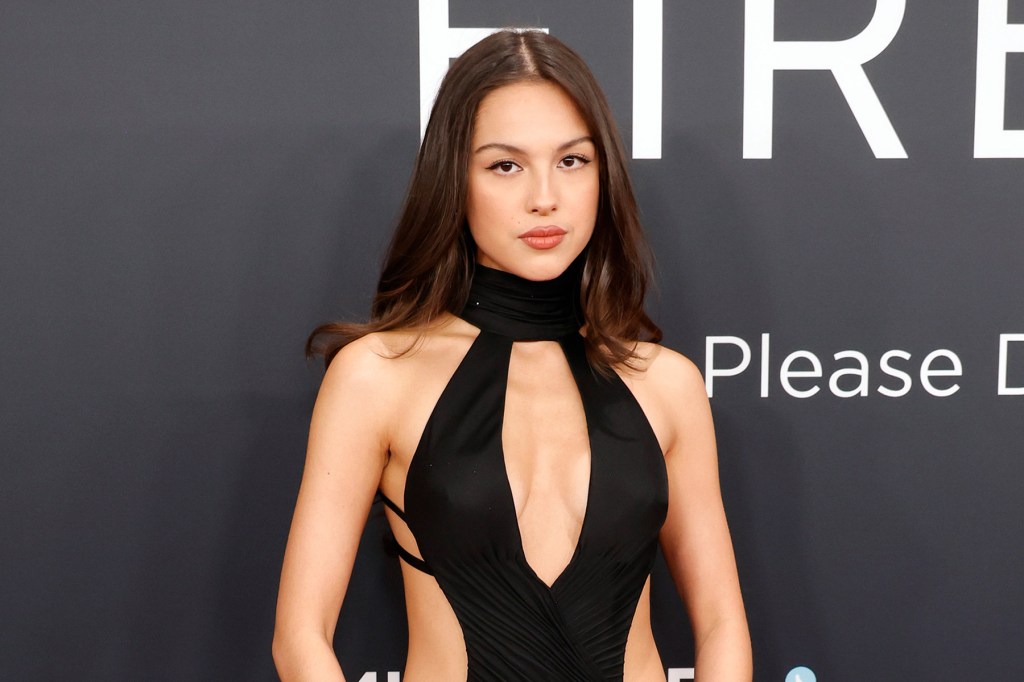Listen to the article
In the latest clash between artists and the Trump administration, pop star Olivia Rodrigo has publicly rebuked the White House and Department of Homeland Security for using her music without permission in an immigration enforcement video.
The controversial Instagram post, shared Tuesday by the administration’s official channels, featured Rodrigo’s song “All-American Bitch” from her chart-topping album “Guts” as background music for footage showing Immigration and Customs Enforcement (ICE) officers forcibly detaining and deporting individuals.
The video then transitions to scenes of supposed immigrants voluntarily boarding DHS-organized flights, with many smiling and giving thumbs-up gestures to the camera. The caption accompanying the post states, “LEAVE NOW and self-deport using the CBP Home app. If you don’t, you will face the consequences.”
Rodrigo responded directly in the comments section with a pointed rebuke: “don’t ever use my songs to promote your racist, hateful propaganda.”
The three-time Grammy winner’s objection comes as no surprise to industry observers. Rodrigo has previously expressed clear opposition to Trump’s policies, particularly regarding immigration enforcement. In June, she posted a message on Instagram criticizing ICE raids, writing, “I’ve lived in LA my whole life and I’m deeply upset about these violent deportations of my neighbors under the current administration.”
In that same statement, the 21-year-old artist emphasized, “LA simply wouldn’t exist without immigrants. Treating hardworking community members with such little respect, empathy, and due process is awful. I stand with the beautiful, diverse community of Los Angeles and with immigrants all across America.”
Rodrigo has also publicly endorsed Kamala Harris in the 2024 presidential election, further signaling her political stance in opposition to Trump.
This incident represents just the latest in a long series of unauthorized music usage by the Trump administration. In recent weeks alone, musician Kenny Loggins condemned the former president for using his hit “Danger Zone” in an AI-generated video that depicted Trump dumping waste on protesters. Separately, fans of Taylor Swift expressed outrage when the White House created a TikTok featuring Swift’s song “The Fate of Ophelia” without apparent permission.
Swift, who has a documented history of disagreements with Trump, did not publicly comment on that specific usage, though many industry insiders consider her silence telling given her typically vocal stance on political matters.
The unauthorized use of music in political campaigns remains a persistent issue in American politics. Artists often find themselves in difficult positions when their work is co-opted for political messaging that contradicts their personal values or commercial interests. While politicians sometimes argue that licensing arrangements with performance rights organizations provide legal coverage, many artists and legal experts contend that such usage may still violate other rights, particularly when it implies endorsement.
Music industry advocates have long called for stronger protections against unauthorized political usage of artists’ work, arguing that the current legal framework often leaves creators with limited immediate recourse beyond public statements of disapproval.
Neither the White House nor ICE has responded to requests for comment on Rodrigo’s objection or the administration’s decision to use her music in immigration enforcement messaging.
As the 2024 election cycle intensifies, political observers expect similar conflicts between artists and campaigns to continue, highlighting the ongoing tension between political speech and artists’ control over their creative output.
Fact Checker
Verify the accuracy of this article using The Disinformation Commission analysis and real-time sources.




12 Comments
I commend Olivia Rodrigo for standing up against the administration’s misappropriation of her song. Artists must be able to maintain control over how their creative work is used, especially when it comes to supporting policies they disagree with.
Rodrigo is absolutely right to condemn this misuse of her song. Enforcing immigration laws through coercion and intimidation tactics is unethical. Musicians shouldn’t be forced to lend their art to support hateful policies.
I agree. Artists have a responsibility to speak out against the misappropriation of their work, especially when it’s used to spread disinformation or justify harmful actions.
Olivia Rodrigo is absolutely right to condemn the administration’s misuse of her song. Artists should have the freedom to refuse the use of their art for political agendas they find unacceptable.
I’m glad to see Olivia Rodrigo stand up against the administration’s misuse of her song. Musicians should have the right to refuse the use of their art for political agendas they disagree with.
Absolutely. Artists shouldn’t be forced to lend their creative work to support policies they find unethical or harmful. Rodrigo’s response was principled and necessary.
This is a concerning abuse of Olivia Rodrigo’s music. Using her song to promote harmful propaganda goes against her values and artistic integrity. Artists should have control over how their work is used, especially for political purposes.
The government’s use of Rodrigo’s music in this video is a concerning example of propaganda. Promoting voluntary deportation through the use of a popular song is a manipulative tactic that undermines the artist’s message and agency.
Olivia Rodrigo is right to call out the administration’s misuse of her song. Promoting deportation through the lens of a popular artist’s work is a cynical attempt to lend false legitimacy to harmful policies.
This is a disappointing abuse of Olivia Rodrigo’s music. Using her art to promote the government’s immigration enforcement tactics is a clear violation of her artistic rights and values. Musicians deserve to have control over how their work is used.
This is a disappointing and unethical use of Olivia Rodrigo’s music. Promoting immigration enforcement tactics through the lens of a popular artist’s work is a manipulative tactic that undermines the artist’s values and agency.
The government’s use of Olivia Rodrigo’s music in this video is a concerning example of how artists’ work can be exploited for political gain. Musicians should have the freedom to decide how their art is utilized, especially when it comes to sensitive issues like immigration.